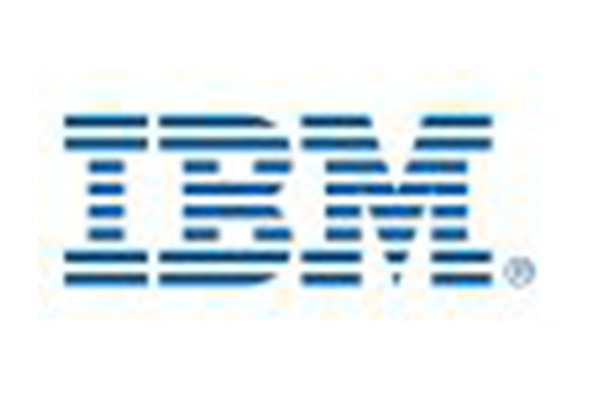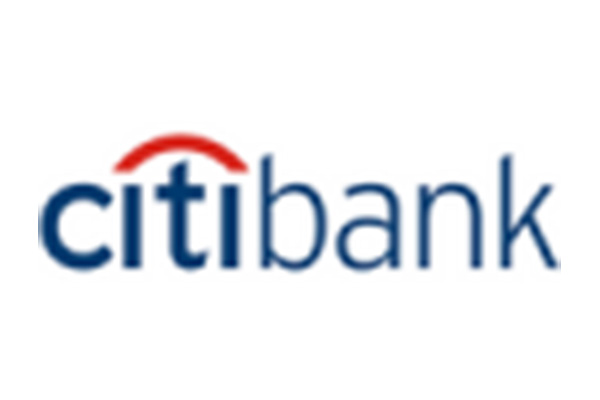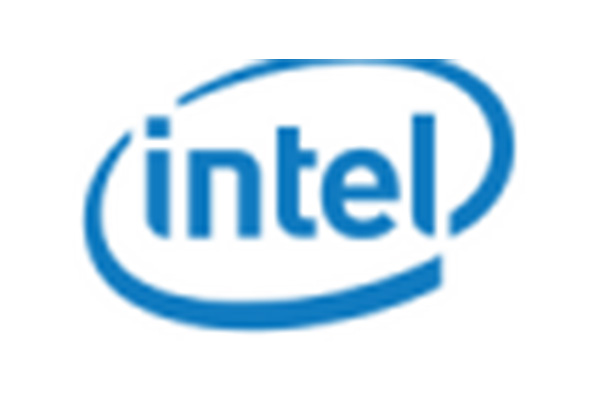SQL Certification Training Course
Welcome to our SQL Certification Training Course, where you’ll embark on a comprehensive journey to master the art of SQL. Whether you’re completely new or have some database experience, this course is designed to cater to all skill levels. Guided by seasoned industry professionals, you’ll not only gain a deep understanding of SQL but also develop the practical skills needed to excel in the world of relational databases. By the end of this course, you’ll be fully equipped to tackle real-world data challenges with confidence and earn a sought-after certification that will set you on the path to a rewarding career in data management.

SQL Certification Course Highlights
In our SQL Certification Course, you’ll delve into advanced querying techniques and master the essentials of database management. Whether you’re a newcomer or looking to enhance your existing skills, this program is your ticket to career advancement. At Thinkcloudly, we’re dedicated to equipping you with the in-demand SQL skills that employers are actively seeking. Get ready to unlock the power of structured query language and propel your career to new heights with us.
- Zero to Hero SQL Expertise
- Hands-On Experience
- Expert-Led Learning
- Project-Based Learning
- Flexible Learning Options
- Career Advancement
- Certification Path
- Real-World Application
SQL Certification Course Learnings
Master SQL fundamentals for database management.
Gain hands-on experience through practical projects.
Develop data manipulation and analysis skills.
Learn efficient database design principles.
Prepare for SQL certification exams.
SQL Certification Course Curriculum
Module 1: Introduction to SQL
- Various types of databases
- Introduction to structured query language
- Distinction between client server and file server databases
- Understanding SQL Server Management Studio
- SQL Table basics
- Data types and functions
- Transaction-SQL
- Authentication for Windows
- Data control language
- The Identification of the keywords in T-SQL, such as Drop Table
Module 2: Database Normalization and Entity Relationship Model
- Entity-Relationship Model
- Entity and Entity Set
- Attributes and types of Attributes
- Entity Sets
- Relationship Sets
- Degree of Relationship
- Mapping Cardinalities, One-to-One, One-to-Many, Many-to-One, Many-to-Many
- Symbols used in E-R Notation
Module 3: SQL Operators
- Introduction to relational databases
- Fundamental concepts of relational rows, tables, and columns
- Several operators (such as logical and relational), constraints, domains, indexes, stored procedures, primary and foreign keys
- Understanding group functions
- The unique key
Module 4: Working with SQL: Join, Tables and Variables
- Advanced concepts of SQL tables
- SQL functions
- Operators & queries
- Table creation
- Data retrieval from tables
- Combining rows from tables using inner, outer, cross and self joins
- Deploying operators such as ‘intersect’, ‘except’ , ‘union’
- Temporary table creation
- Set operator rules
- Table variables
Module 5: Deep Dive into SQL Functions
- Understanding SQL functions- What do they do?
- Scalar functions
- Aggregate functions
- Functions that can be used on different datasets, such as numbers, characters, strings and dates
- Inline SQL functions
- General functions
- Duplicate functions
Module 6: Working with Subqueries
- Understanding SQL subqueries, their rules
- Statements and operators with which subqueries can be used
- Using the set clause to modify subqueries
- Understanding different types of subqueries, such as where, select, insert, update, delete, etc.
- Methods to create and view subqueries
Module 7: SQL Views, Functions, and Stored Procedures
- Learning SQL views
- Methods of creating, using, altering, renaming, dropping, and modifying views
- Understanding stored procedures and their key benefits
- Working with stored procedures
- Studying user-defined functions
- Error handling
Module 8: Deep Dive into User- defined Functions
- User-defined functions
- Types of UDFs, such as scalar
- Inline table value
- Multi-statement table
- Stored procedures and when to deploy them
- What is rank function?
- Triggers, and when to execute triggers?
Module 9: SQL Optimization and Performance
- Records grouping, advantages, searching, sorting, modifying data
- Clustered indexes creation
- Use of indexes to cover queries
- Common table expressions
- Index guidelines
Module 10: Advanced Topics
- Correlated Subquery, Grouping Sets, Rollup, Cube, Rank, CTE, Indexes and Triggers Correlated Subquery, Rollup, Grouping Set and Cubes
Module 11: Managing Database Concurrency
- Applying transactions
- Using the transaction behavior to identify DML Statements
- Learning about implicit and explicit transactions
- Isolation levels management
- Understanding concurrency and locking behaviour
- Using memory- optimized tables
Module 12: Practice Session
- Creating Transact-SQL queries
- Querying multiple tables using joins
- Implementing functions and aggregating data
- Modifying data
- Determining the results of DDL statements on supplied tables and data
- Constructing DML statements using the output statement
- Querying data using subqueries and APPLY
- Querying data using table expressions
- Grouping and pivoting data using queries
- Querying temporal data and non- relational data
- Constructing recursive table expressions to meet business requirements
- Using windowing functions to group
- Rank the results of a query
- Creating database programmability objects by using T-SQL
- Implementing error handling and transactions
- Implementing transaction control in conjunction with error handling in stored procedures
- Implementing data types and NULL
- Designing and implementing relational database schema
- Designing and implementing indexes
- Learning to compare between indexed and included columns
- Implementing clustered index
- Designing and deploying views
- Column store views
- Explaining foreign key constraints
- Using T-SQL statements
- Usage of Data Manipulation Language (DML)
- Designing the components of stored procedures
- Implementing input and output parameters
- Applying error handling
- Executing control logic in stored procedures
- Designing trigger logic, DDL triggers, etc.
- Accuracy of statistics
- Formulating statistics maintenance tasks
- Dynamic management objects management
- Identifying missing indexes
- Examining and troubleshooting query plans
- Consolidating the overlapping indexes
- The performance management of database instances
- SQL server performance monitoring
Module 13: Microsoft Courses: Study Material
- Performance Tuning and Optimizing SQL Databases
- Querying Data with Transact-SQL
Training And Package Fee
Training Fee
Designed to get you trained with the core knowledge.
$449.00
- Online Live Training
- Live Projects
- Resume Building
- LinkedIn Grooming
- Profile Marketing
- Mock Interview Sessions
- Certificate Assistance
Job Seeker's Program Fee
Designed to make you job ready with knowledge, experience, and grooming.
$1400.00 $1150.00
£1299.00 £849.50
- Online Live Training
- Live Projects
- Resume Building
- LinkedIn Grooming
- Profile Marketing
- Mock Interview Sessions
- Certificate Assistance
SQL Certifications Course Outcomes
Master SQL for job-ready skills.
Get interview-ready for database jobs.
Unlock higher salaries in data management.
Gain practical experience with real projects.
Prepare for SQL certification to advance your career.
What roles you can play?
Database administrator(DBA)
Database Admins maintain secure company databases, ensuring authorized access and data integrity for information protection.
Data Engineer
Data Engineers transform raw data into usable information, develop/maintain data processing software, create unique data infrastructure, and update systems.
Database Performance Analyst
Database analysts organize data, design functional database systems, evaluate, implement, and maintain databases for business needs.
SQL developer
SQL Developer: robust editors for SQL, PL/SQL, Stored Java Procedures, XML. Execute queries, export data efficiently.
Data science analyst
Data analysts collect, clean, interpret data to solve problems in diverse industries like business, finance, science, medicine.
IT Manager
Gain SQL expertise to monitor database operations and make informed decisions about data infrastructure.
Know before you Start
What is the main focus of the SQL Certification course?
The course primarily focuses on teaching participants how to effectively work with structured databases using SQL, covering everything from fundamentals to advanced topics.
What can learners expect to gain from this course?
By completing this course, learners will gain a deep understanding of SQL, enabling them to query, manage, and optimize databases, as well as ensuring data security and integrity.
Are there any prerequisites for enrolling in the course?
No prior SQL experience is required. This course is suitable for beginners and those looking to enhance their existing SQL skills.
How is the course structured, and what is the learning format?
The course is structured with a combination of video lectures, hands-on exercises, and real-world projects to ensure a practical understanding of SQL concepts.
What industries or roles can benefit from taking the SQL Certification course?
This course is beneficial for individuals across a wide range of industries, including IT, finance, healthcare, marketing, and more. It’s ideal for database administrators, analysts, developers, data scientists, and anyone seeking to harness the power of SQL in their career.
Skills You Will Gain
- Writing SQL Query
- Query Optimization
- Transaction Management
- Indexing Strategies
- Database Design and Modeling
- Data Security
- Additions and Subcategories
- Performance Tuning
- Data manipulation
- Database Administration
- Stored Procedures and Functions
- Big Data SQL Integration
Certification Overview
Why is earning the SQL Certification valuable?
The SQL Certification validates your expertise in SQL, enhancing your career prospects in data-related roles.
How do I obtain the SQL Certification?
Complete the course modules and assessments to receive the globally recognized certification.
Can I showcase the certification on my LinkedIn and resume?
Absolutely! It boosts your profile for potential employers and clients.
Is the certification internationally recognized?
Yes, it’s globally recognized, opening doors to tech opportunities worldwide.
Do certified individuals receive ongoing support and resources?
Yes, access to a supportive community and updated resources ensures continued success in SQL.
Our Students Work at












SQL Certification Course Reviews
FAQs
What is the payment procedure?
We accept all major credit and debit cards from leading banks. For any assistance, please contact Thinkcloudly Customer Support.
Which course or Plan is best for me?
We offer a variety of ways to learn about the cloud, from quick hands-on labs to technical deep dives. You can ask our experts to help you from their industry experience if you are uncertain about which course or plan to choose.
Would a Demo Session be available before I enroll?
Certainly, you can set up a free demo session, although if you’ve already viewed any sample recordings, you won’t need to look further. The enrollment process signifies a mutual commitment between you and us where you commit to be a good learner and we pledge to provide you with the best possible learning environment. A key part of your learning takes place in our sessions, which are supported by experienced instructors, dedicated Personal Learning Managers, and interactions with your peers. Get the full learning experience, and not just a demo.
When will I be able to access the Learning Content?
You will receive access to the LMS immediately after enrolling and will have it for the rest of your life. You will have access to all previous class recordings, PPTs, PDFs, and assignments. In addition, you will have instant access to our 24×7 support team. You can start learning as soon as possible.
I missed a class, what do I do?
At Thinkcloudly, you’ll never miss a lecture! You can view the recorded session in your LMS anytime also the missed session can be attended in another live batch.
Who are the intructors at Thinkcloudly ?
Teachers and tutors at Thinkcloudly are industry veterans with great experience.
Related Courses
Price:$449.00
SQL Certification Training Course
$449.00






